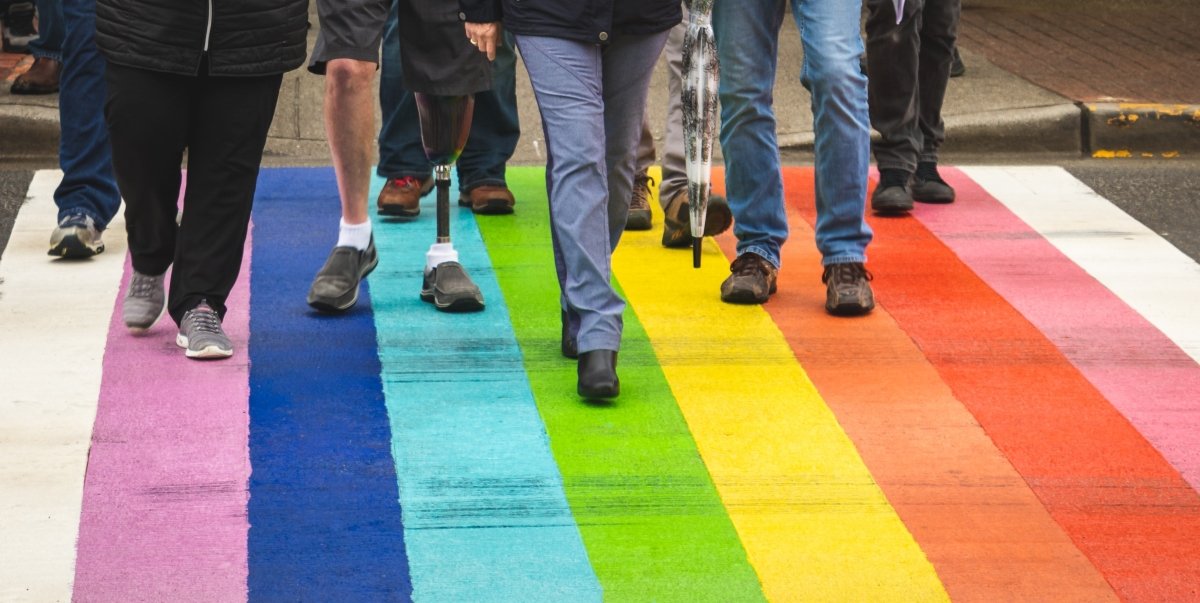Your cart is empty

Safe Spaces in Craft Beer
What’s the first idea you think of when hearing the phrase ‘safe space’? For most of us, the first idea that comes to mind is concerning physical protection. In brewing, this means having access to personal protection equipment (PPE) and following standard operating procedures.
But for many of us, just about anywhere feels safe including where we choose to have a beer. That's not the reality for many marginalised groups. Just imagine, you’re getting ready to go out with your mates and the first concern is whether or not the venue is safe for people like you.
Unfortunately for women, ethnic minorities, and LGBTQ+ communities, this is business as usual. It’s time that we as a community double our efforts to build and promote safe spaces in beer.
What is a Safe Space?
According to the Oxford Dictionary, a safe space is “a place in which a person or a particular group of people can know that they will be free from harm or criticism’. The term ‘safe space’ has its origin in the 1960s. Firstly, as a term for gay and lesbian bars in Los Angeles, California.
Secondly, during the 1970s ‘safe spaces’ were where communities of women could gather together for political movements.
In short, safe spaces can cover:
- Ideological safety- freedom to express your thoughts and feelings without judgement or hostility
- Physical safety- feeling safe and protected from harm
- Environmental safety- a friendly and inclusive environment that fosters support and equality
It's those who are most vulnerable that are lacking environments where they can let down their guard and be authentic. In fact in the UK, a survey found that more than two-thirds of LGBT respondents avoided holding hands with a same-sex partner in public for fear of a negative reaction from others.
Safe Spaces in the UK
The British beer industry has come a long way since the neckbeards/ socks and sandals of the 90s. That doesn’t mean we still don’t have a looooong way to go! In our previous post about craft beer inclusivity, we looked at diversity in beer or the lack thereof. The stats in that article paint a poor picture when it comes to equality and inclusion. In, the UK, we face many challenges to creating safer spaces in beer.
Here are some eye-opening statistics from a UN Women UK survey:
- Over 70% of women in the UK have said they have experienced sexual harassment in public spaces
- Only 3% of women aged 18-24 in the UK have not experienced some form of harassment\
From the TransActual Trans Live Survey:
- 63% of respondents reported experiencing transphobia while seeking employment
- 72% of respondents have experienced discrimination while trying to access goods or services
Additionally, the National LGBT Survey found that least 2 in 5 respondents had experienced verbal harassment or physical violence during the past 12 months because they were LGBT.

A survey from Runnymede found that more than 1 in 4 Brits are at least ‘a little prejudiced’ when it comes to other races
Image source: Runnymede
As far as race relations in the UK, we think the above chart from Runnymede says a lot. More than 1 in 4 people in Great Britain described themselves as ‘a little prejudiced’ against people of other races.
This type of racism seeps into everyday activities including work and socialising, and craft beer is no exception.
How We Can Create Safe Spaces in Craft Beer
The state of things can be overwhelming but if we break it down into smaller pieces, we can build a working strategy.
Workplace
It’s not asking much for brewery employees to be free from discrimination and harassment. A good way to foster a safe working environment is to create and maintain a Code of Conduct for all team members.
Necromancer Brewing Co. of Washington D.C. is one of several businesses on a mission to create safer spaces in beer. You can find their exemplary Code of Conduct available online to get some inspiration.
Using their example as a template, include the following in your company code of conduct:
- List of company values
- Outline all unacceptable behaviours/ define harassment
- Define work and customer relationships
- Procedures for managing violations/ incidents
A UK survey found that only 4% of women reported incidents of harassment to an official or organisation. Make sure every member of your team understands how to identify and report incidents of harassment.
Vital to building safe spaces, Brave Noise offers a wealth of resources and partners they offer for breweries, bars, homebrewers, and beer drinkers. For example, you can sign up with #NotMe for harassment training and streamline incident reporting.
Venues
Taprooms, brewpubs, and beer bars should all represent the ethos of our brewing communities–beer is for the people, it doesn’t discriminate!
Many of us are unaware of the uncomfortableness and downright harassment that others go through daily. We can wash away the stains of ignorance by giving people a clear understanding.
Organisations like Right To Be offer training and free seminars to help your team not only empathise but know how to handle any harassment incidents they witness. The UK-based Good Night Out are here to help bars, pubs, clubs and more maintain safer spaces that protect against sexual harassment and assault.

Queer Alternative arms campaign backers with flyers and a poster to be hung in their venue
Image source: Queer Alternative
Here in the UK, breweries and bars can partner with Queer Alternative to promote safe spaces for the LGBTQ+ community. These partnerships allow you to openly post a sign making known you host a supportive environment that will not tolerate discrimination of any kind.
Festivals
Unfortunately beer festivals are still known for unruly behaviour, acts of indecency, discrimination, sexual harassment and sexual assault. While things are improving, craft beer festivals are still full to the brim of men drinking way more alcohol than is necessary (’all-in festivals are a real culprit here but we digress).
The first line of defence against sexual violence and harassment is to create a code of conduct for festival goers and tenants. The Association of Independent Festivals (AIF) offers a Charter of Best Practices for building a safe festival space. This also includes guidelines on how to spot and handle drink-spiking and other forms of drug-facilitated sexual assault.
The Coven
Household brewing was dominated by women from around the Stone Age up until the 1700s. Some women even took their homebrew to the markets. Naturally, the bigger brewing operations at the time accused the women of being ‘witches’. How else could they conjure such tasty beverages from their black cauldrons?
With that being the case, it’s only fitting that the organisation known as The Coven represents women-owned and women-brewed beer. Founded by Brewery Manager Pip Young, The Coven is also a leader in promoting women’s safety at beer festivals and events.
This group of brewsters has now raised enough money to employ wellness officers to attend beer fests as active bystanders, trained both in first aid and mental health. However, they’ve only reached the tip of the iceberg for generating safer spaces to work and drink.
The honest truth is that progressive organisations like The Coven need all of us to get involved if real change is to happen.
Join the Good Fight by Drinking Lumber Jill IPA
At Sheep in Wolf’s Clothing, our brewery is founded on three principles: inclusivity, community, and sustainability. We are ashamed of the current state of the beer industry. It is not nearly as inclusive or open as it should be. We believe that people from all walks of life deserve safer spaces to drink, work, and socialise.

Sheep in Wolf’s Clothing supports The Coven and its mission to create safer spaces in beer
Image source: The Coven
We’ve paired up with Pip Young to promote safer spaces in beer. For every can of Lumber Jill IPA sold, we are donating 10p to The Coven.
You can head to our online shop and pick up some cans of orange and pine goodness. Don’t forget to check out #buyherbeer on your socials to find out more about how you can support The Coven!
Until next time, keep up the good fight and always remember to drink beer from companies that stand for what you believe in!
- Choosing a selection results in a full page refresh.


